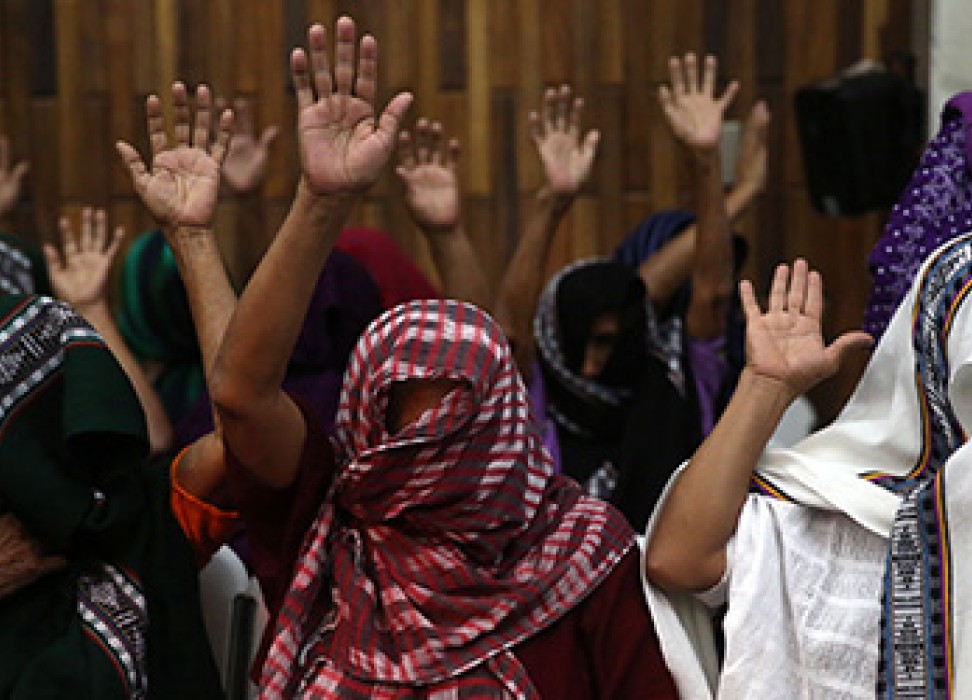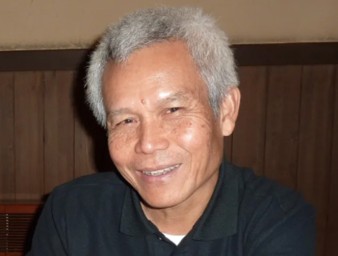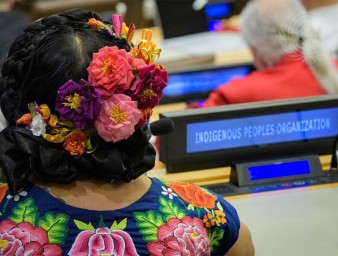UN Fund for Victims of Torture plays a role in landmark ruling for indigenous women in Guatemala
16 March 2016

“The soldiers broke my marriage,” a woman from Guatemala said. “They burned everything we had. We had nowhere to go. When we finished our shifts at the base, we were forced to provide food for the soldiers, to make tortillas and wash uniforms. For six years.”
She said that after the disappearance of her husband, she was forced to work 12-hour shifts at the Sepur Zarco military base in Guatemala.
She is one of the 14 victims who provided chilling testimonies to help convict two former members of the military to 360 years in jail for the murder, rape and sexual enslavement of indigenous women.
In the first successful prosecution for sexual violence committed during Guatemala's military conflict in the 1980s, Steelmer Reyes Girón and Heriberto Valdez Asij were found guilty of crimes against humanity including sexual violence and murder.
Years of support, from psychological to legal, by the UN Human Rights Office and many Guatemalan civil society actors, helped bring justice to these women.
Through its capacity building activities, OHCHR Guatemala and ONU Mujeres (UN Women) provided technical assistance to the Attorney-General’s Office, judges from the criminal jurisdiction and from high risk tribunals, and plaintiffs on international standards related to transitional justice. They also worked with the Maya Programme to support the litigation process.
Civil society organizations including the Asociación Mujeres Transformando el Mundo (Women Transforming the World), Unión Nacional de Mujeres Guatemaltecas (National Union of Guatemalan Women), and the Collective Jalok´U, an organization of Q´eqchi survivors which supports women victims of sexual violence, lent vital support during the process.
The United Nations Voluntary Fund for Victims of Torture, managed by the UN Human Rights Office in Geneva, played a time-bound yet essential role by awarding an emergency grant in December 2015 to the Equipo de Estudios Comunitarios y Acción Psicosocial (ECAP), a civil society organization specialized in the delivery of psychological support to victims of torture and their family members.
Trial proceedings generate high pressure on victims since they included screenings of many videos and lengthy private and public oral testimonies. Timely specialized psychological support to witness-bearing victims during court proceedings was key in preventing re-victimization.
The Court noted that the offenses were committed under a strategy aimed at eliminating the men who sought to claim their collective right to indigenous lands and forcing their widows to serve as slaves for the military, including sexually.
“We had to clean rice and beans, and to cook. We were raped several times. They said that no one was looking for us,” another survivor said.
Some of the victims endured their ordeal as long as six years until the base was closed in 1988.
Mayan Q’eqchi’ women and their supporters have been demanding accountability for the crimes at Sepur Zarco for years, even as survivors have faced discrimination, stigmatization, and re-victimization.
ECAP’s director, Susana Navarro, noted the crucial UN Fund’s support, saying it had “helped accompany and strengthen the women during the trial, so that they could be actors in the judicial process.”
She added that the legal victory sent a message around the world for other women: “If this can happen in Guatemala, despite the weaknesses of its judicial system, women in other parts of the world can also try to seek justice.”
The United Nations Fund for Victims of Torture has since 1981 channelled US$168 million to more than 620 organizations globally. These organizations have in turn provided essential services to victims of torture. Now in its 35th year, as the oldest and largest human rights fund, it awards projects providing medical, psychological, humanitarian, social and legal rehabilitation services to around 50,000 victims of torture and their family members each year.
16 March 2016



